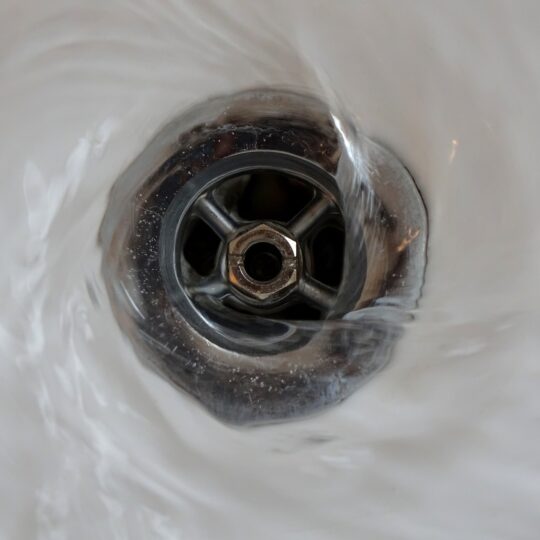How to Get Rid of Drain Flies

Flies are never a welcome pest inside your home where they are responsible for spreading bacteria and disease, as well as being a general nuisance by buzzing around your home green. Drain flies are one of the many flies that cause infestations in homes, and while they are less likely to lead to health issues, they are still unpleasant to have hanging around your kitchen or bathroom and may be indicative of a larger problem as well.
This makes it important to address drain flies when you notice them on your property. These steps can help you identify drain flies, understand what might be attracting them, and give you the right strategies to get rid of them.
What are Drain Flies?
As the name implies, drain flies spend most of their time around drains. They need moisture and they feed on the rotting material that gets stuck in drains, such as food that goes down your kitchen sink. Drain flies do not go after sewage, but they are attracted to standing water and bacteria, so they can still be present in your bathroom or outdoor spaces.
Drain flies lay their eggs in stagnant water and moist drains, attaching their eggs to the side of the drain. Each egg can then hatch within 2 days and shortly after, new flies will start laying their own eggs. Although each adult fly will live less than a month – and some only as long as a week – they will lay hundreds of eggs in that time, leaving you with a significant drain fly problem.
Drain flies are smaller, comparable in size to a fruit fly, but they have thicker bodies that seem to be fuzzy, thick legs, and rounded wings. Once they are inside your home, they will hover almost constantly around the drains where they live and feed.
How Drain Flies Get In – and How to Keep Them Out
A drain fly can get in through almost any opening, such as an open door, window, or small crack somewhere around your house, but they do not often crawl up through drains.
Once one fly is inside, that one can be enough to start an infestation. But this depends on drain flies having the right place to feed and lay their eggs. The following conditions can make your drain more attractive to flies:
- Clogged Drains – Drains in bathrooms that get clogged with hair or other debris will serve as a breeding ground for bacteria that the drain flies can feed on, and could also cause areas of standing water that will attract drain flies. Make sure that all drains in your home consistently have good flow and take steps to unclog drains if you suspect they are blocked.
- Soap Scum – Soap scum in drains and around sinks, showers, and tubs is a collection of soaps and oils and makes for a good location for bacteria to grow. You should wipe down sinks and tubs every few weeks to prevent soap scum build up. To break up soap scum in drains, you can pour warm water with a bit of dish soap or vinegar down into the sink.
- Manage Food Scraps – If you do not have a garbage disposal, avoid putting any food in your kitchen sink as it can become trapped in the drain. If you do have a garbage disposal, run it anytime you do dishes with running water to flush out any food residue. Regularly cleaning your kitchen sink drain with a mixture of hot water and dish soap or vinegar, or another preferred cleaning product, will also help to remove food residue and kill bacteria.
- Remove Rotting Food – Although drain flies most often go for drains since they have ample moisture, they can be attracted by rotting fruits and vegetables in your kitchen too. Make sure to throw away any food that has spoiled as soon as possible to avoid feeding drain flies and other fly types.
Cleaning your drains is an effective way to prevent drain flies and also to manage an infestation. But when there is a stubborn build up of bacteria that you cannot reach, drain flies may still be able to find a food source despite your best efforts. This is where professional pest control can help.
ExtermPRO can get rid of drain flies in Gainesville and other locations in Virginia. We use eco-friendly and safe treatments to remove drain flies from drains or wherever else they might be active, and have solutions to keep them away for good. Contact us to get a free quote and the leading local pest control in Northern Virginia.